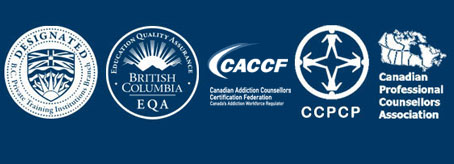Abuse, Trauma, and Domestic Violence

ADV-400 Abuse, Trauma, and Domestic Violence
Course in a nutshell
Discussion Topics: Various types of trauma, sexual and physical abuse, violent crime, and natural disasters. Assessment tools and treatment strategies symptoms affecting individuals and family relationships; secondary victimization; and ethical and legal reporting requirements.
Skills: You’ll learn counselling and interviewing techniques to assess for scope of practice; how to build safety and provide support; identify symptoms of trauma, PTSD, abuse and/or domestic violence; and how to develop primary, secondary and tertiary intervention plans.
COURSE CONTENT
- The multi-generational implications and effects of trauma, abuse, and violence on the individual, and family members.
- Dynamics involved with a broad spectrum of trauma, abuse and violence affecting all levels of society such as crimes against women; child abuse; abuse between family members, homicide, cyberstalking, bullying and natural disasters.
- Assessment procedures used to determine scope of practice, appropriate referrals, and/or treatment strategies.
- The psychological impacts of trauma, abuse and violence such as guilt, shame, patterns of defenses, irrational cognitions, addictive behaviors other mental disorders.
- Cultural aspects involved in the healing process relating to unhealthy community environments, dysfunctional families, and secondary victimization.
- Primary, Secondary and Tertiary levels of treatment planning and prevention programs.
- Issues that trigger counter transference in the counselor; need for supervision and self-care.
- The limits of confidentiality, duty to report, the counsellor’s ethical and legal responsibilities, and scope of practice.
PORTFOLIO OF JOB SKILLS
Abuse, Trauma, and Domestic Violence (ADV-400) will teach you the skills needed to assess and provide supportive counseling to victims of trauma, sexual, physical and/or emotional abuse. Your level of proficiency and competence with the skills introduced in this course will deepen as you proceed through the program. Upon graduation from the Diploma or Certificate program, you may include the following skills as part of your Professional Portfolio:
1. Ability to facilitate a client’s disclosure of abuse through supportive, trust building techniques such as:
- empathic listening
- crisis intervention
- empowerment
- trauma assessment
- collaborative goal setting
- address safety issues
- knowledge of community resources
NOTE: techniques used in crisis intervention and trauma debriefing are addressed in Conflict, Suicide and Emergency Intervention (CSE-400).
2. Ability to work collaboratively with clients through the three phases of counselling:
- the beginning phase involves: trust building to facilitate disclosures; personal self care plans and support networks; crisis intervention; and goal setting for long term treatment planning.
- middle phase includes supporting and helping clients work through painful feelings, such as: guilt, shame, and self-destructive behaviors; using cognitive restructuring, and identifying irrational thought patterns.
- the ending phase to develop healthy relationships, set appropriate boundaries, and achieve closure through confrontation/forgiveness.
3. Ability to assess the client’s circumstances, identify indications of trauma, and make appropriate referrals to professionals and/or community resources (in cases when the client’s needs for service falls outside the limits of the counsellor’s scope of practice).
4. Ability to develop treatment plans and prevention programs at the Primary, Secondary and Tertiary levels.
5. Ability to assess for a client’s level of risk to cause harm to self or others.
6. Ability to practice within the limits of confidentiality and ethical standards, while adhering to reporting responsibilities when dealing with suspected abuse to vulnerable populations such as children, and the elderly.
7. Ability to understand cultural diversity in the context of abuse.
8. Ability to be familiar with and include a wide variety of community resources in treatment planning.
NOTE: The skill set you will learn in this course comprises areas of core competence required for the practice of professional counselling and membership in professional associations.






